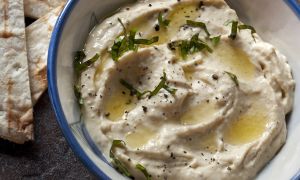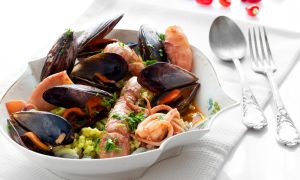Advertisement
The active ingredients in CholestOff are an amalgamation of sterols and stanols extracted from pine trees. The most common of these are beta-sitosterol, campesterol, and stigmasterol. Plant sterols and stanols help lower LDL (bad) cholesterol by blocking the absorption of cholesterol from food. This forces the body to draw LDL out of the bloodstream in order to extract its cholesterol to make bile acid and hormones.
According to the latest national guidelines on cholesterol, eating two grams of plant sterols or stanols a day can lower LDL by 6% to 15%. You can get this amount from foods fortified with sterols and stanols, such as some brands of margarine, yogurt, orange juice, granola bars, and even tortilla chips. Or you can get it from supplements such as CholestOff—four caplets of CholestOff deliver 1.8 grams.
A small body of research suggests that plant sterols (also called phytosterols) may protect against breast, prostate, and colon cancer. In the lab, plant sterols have been shown to slow or stop tumor growth, inhibit the spread (metastasis) of cancer, and cause cancer cells to self destruct. Keep in mind that this is preliminary research, and that what works in glass vials or plates doesn't necessarily work in the human body. That said, there isn't any evidence that consuming an extra two grams of plant sterols or stanols a day promotes breast or other cancers.
Although plant sterols and stanols are "natural," a small percentage of people report bothersome side effects. These include nausea, heartburn or indigestion, constipation, diarrhea, and, in men, erectile dysfunction or decreased sex drive. If you are happy taking CholestOff and it is working for you, stick with it. But just so you know, a low-dose statin will lower your cholesterol just as well, if not better, and probably cost you less, with a similar risk of side effects.
According to the latest national guidelines on cholesterol, eating two grams of plant sterols or stanols a day can lower LDL by 6% to 15%. You can get this amount from foods fortified with sterols and stanols, such as some brands of margarine, yogurt, orange juice, granola bars, and even tortilla chips. Or you can get it from supplements such as CholestOff—four caplets of CholestOff deliver 1.8 grams.
A small body of research suggests that plant sterols (also called phytosterols) may protect against breast, prostate, and colon cancer. In the lab, plant sterols have been shown to slow or stop tumor growth, inhibit the spread (metastasis) of cancer, and cause cancer cells to self destruct. Keep in mind that this is preliminary research, and that what works in glass vials or plates doesn't necessarily work in the human body. That said, there isn't any evidence that consuming an extra two grams of plant sterols or stanols a day promotes breast or other cancers.
Although plant sterols and stanols are "natural," a small percentage of people report bothersome side effects. These include nausea, heartburn or indigestion, constipation, diarrhea, and, in men, erectile dysfunction or decreased sex drive. If you are happy taking CholestOff and it is working for you, stick with it. But just so you know, a low-dose statin will lower your cholesterol just as well, if not better, and probably cost you less, with a similar risk of side effects.

More About this Book
The Harvard Medical School Guide to Lowering Your Cholesterol (Harvard Medical School Guides)
This title is from the experts at one of the world's most respected medical schools - your complete guide to managing cholesterol and staying healthy for life. Everybody knows that high cholesterol...
Continue Learning about High Cholesterol
Important: This content reflects information from various individuals and organizations and may offer alternative or opposing points of view. It should not be used for medical advice, diagnosis or treatment. As always, you should consult with your healthcare provider about your specific health needs.




